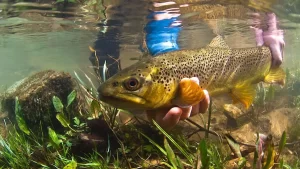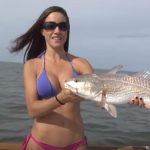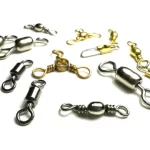Spring creeks, born from underground springs, present a unique challenge for fly anglers. These pristine waterways, with consistent flows and clear waters, nurture robust trout that demand precise presentations.
The Spring Creek Challenge:
Trout in spring creeks, while not intellectually superior, are highly selective due to their environment. The clear, slow-moving water allows them to scrutinize every fly, and any imperfection in presentation or drift sends them fleeing. This requires a refined approach and specialized gear.

Optimal Equipment:
- Rods: Opt for a 3- or 4-weight mid-flex rod for delicate presentations and accurate casts. A 5- or 6-weight with a slower action can also suffice.
- Leaders: Use long leaders, 10 to 15 feet, to minimize line visibility and create distance. Light tapered leaders in 5X or 6X with 6X or 7X fluorocarbon tippet are essential.
- Flies: Match the hatch closely. Familiarize with the creek’s entomology and use high-quality, precise fly patterns.
Effective Techniques:
- Nymphing: Employ nymphing when trout aren’t rising. Target narrow, fast-flowing areas where fish have less time to inspect flies. Use a two-nymph rig with a weighted attractor pattern and a lighter, weightless nymph. Utilize a strike indicator at twice the water depth.
- Downstream Dry Fly Drifting: Achieve a drag-free drift by casting upstream of rising trout and mending slack. Position oneself 50 to 60 feet upstream, cast inline with the riser, and mend to allow a natural drift.
Strategic Approach:
- Approach these waters with a hunter’s mindset: slow, analytical, and unobtrusive.
- Scout the water before fishing, observing insect activity.
- Stealth is Paramount. Spooking fish ends fishing.
The Reward:
Landing a spring creek trout provides immense satisfaction, signifying a high level of angling skill.
Ready to test your skills on a spring creek? Gather the appropriate gear, refine your techniques, and embrace the challenge. Share your experiences and insights, and inspire fellow anglers to conquer these demanding waters.
Image/Source: MeatEater





